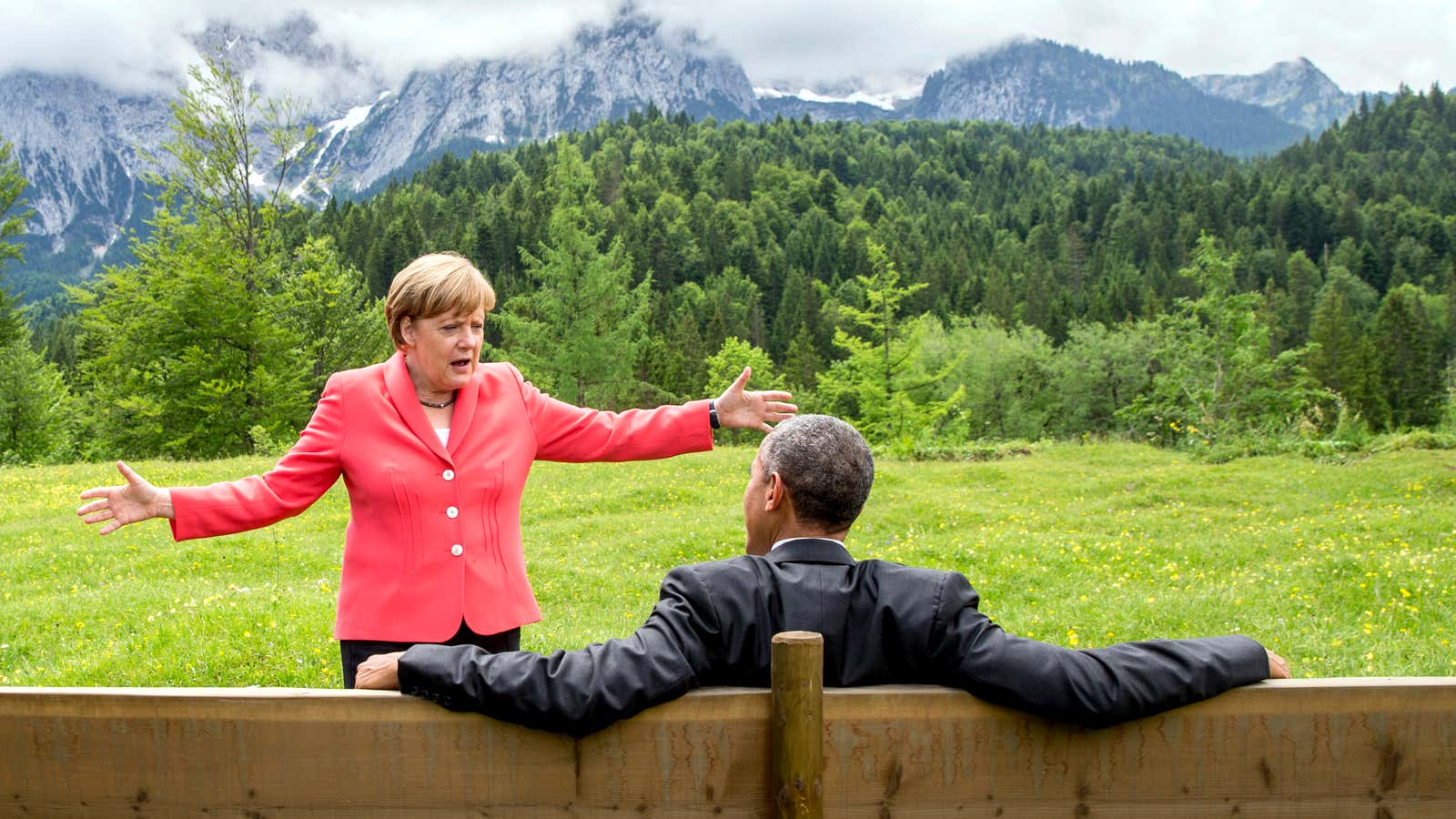Ian Bremmer and Cliff Kupchan, a political scientist and veteran US foreign policy aide respectively, founded the Eurasia Group in 1998 to sell geopolitical know-how to Wall Street. They’ve seen a lot since then. So it’s perhaps saying something that 2016, as Bremmer describes it, is shaping up to be “the most volatile and challenging in terms of geopolitical risk” that the firm has ever seen.
And that assessment was made before North Korea’s Jan. 5 announcement that it had successfully tested a hydrogen bomb.
Number one this year on Eurasia Group’s annual list (pdf) of the top risks to geopolitical order: That diverging challenges for the US and Europe will break down the trans-Atlantic alliance that has been the pillar of global security and economics since the end of World War II. ”The trans-Atlantic relationship has never been weaker than it is today,” Bremmer says.
With Europe occupied by a refugee crisis and a stagnant economy, leaders will be busy fending off far-right political movements, and all too willing to undermine the global order by cutting side deals with illiberal states like Russia, Turkey, and China. Meanwhile, the report suggests, the US is looking inward and shrugging off the burden of global leadership just when it is needed most.
“There’s just no more international fireman of any kind; this year will see both a reticent hegemon and a weaker Western coalition,” the report concludes, predicting further disasters in an unsupervised Middle East. Besides North Korean intransigence, the flareup in tensions between Iran and Saudi Arabia underscores this prediction and will test it: Can the US restrain Saudi Arabia, its ostensible ally, while protecting a nuclear deal with its ostensible enemy Iran?
If there’s any solace to be found from this prediction—which, no coincidence, is part of the story Bremmer has been telling about the world for several years now—it is in the rest of the list, which posits even more volatility in Russia, Turkey, China, and Brazil, as well as the rise of new, non-state actors in the world of technology. Perhaps this is the year where the only thing left standing is the trans-Atlantic relationship.
Oh, and by the way: The experts at the Eurasia Group say not to worry about Donald Trump, China’s economy collapsing outright, or war breaking out in the South China sea. So, you’ve at least got that going for you.
